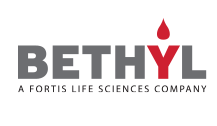Rabbit anti-EpCAM Recombinant Monoclonal Antibody [BLR077G]

Product Details
Specifications
Request Formulation Change Borate Buffered Saline (BBS) pH 8.2 with 0.09% Sodium Azide, BSA-Free
Request Formulation Change
Immunogen was a peptide representing a region between residue 264 and the C-terminus (residue 314) of human Epithelial cell adhesion molecule using the numbering given in entry NP_002345.2 (Gene ID 4072).
Additional Product Information
EpCAM, or epithelial cell adhesion molecule, is a type I transmembrane protein expressed on most normal epithelial cells and gastrointestinal carcinomas. It functions as a homotypic calcium-independent cell adhesion molecule. EpCAM is being used as a target for immunotherapy treatment of some human carcinomas [taken from NCBI Entrez Gene (Gene ID: 4072)].
Alternate Names
adenocarcinoma-associated antigen; CD antigen CD326; cell surface glycoprotein Trop-1; DIAR5; EGP; EGP-2; EGP314; EGP40; Ep-CAM; epithelial cell adhesion molecule; Epithelial cell surface antigen; Epithelial glycoprotein; epithelial glycoprotein 314; ESA; hEGP314; HNPCC8; human epithelial glycoprotein-2; KS 1/4 antigen; KS1/4; KSA; M4S1; major gastrointestinal tumor-associated protein GA733-2; membrane component, chromosome 4, surface marker (35kD glycoprotein); MIC18; MK-1; TACSTD1; TROP1; tumor-associated calcium signal transducer 1
Applications
All western blot analysis is performed using 5% Milk-TBST for blocking and as antibody diluent. Primary antibody is incubated overnight.
Western blots of cell lysates are performed using Goat anti-Rabbit IgG Heavy and Light Chain Antibody (Cat. No. A120-101P).
Western blots of immunoprecipitates are performed using Goat anti-Rabbit Light Chain HRP Conjugate (Cat. No. A120-113P) with 5% Normal Pig Serum (Cat. No. S100-020) added to the blocking buffer.
